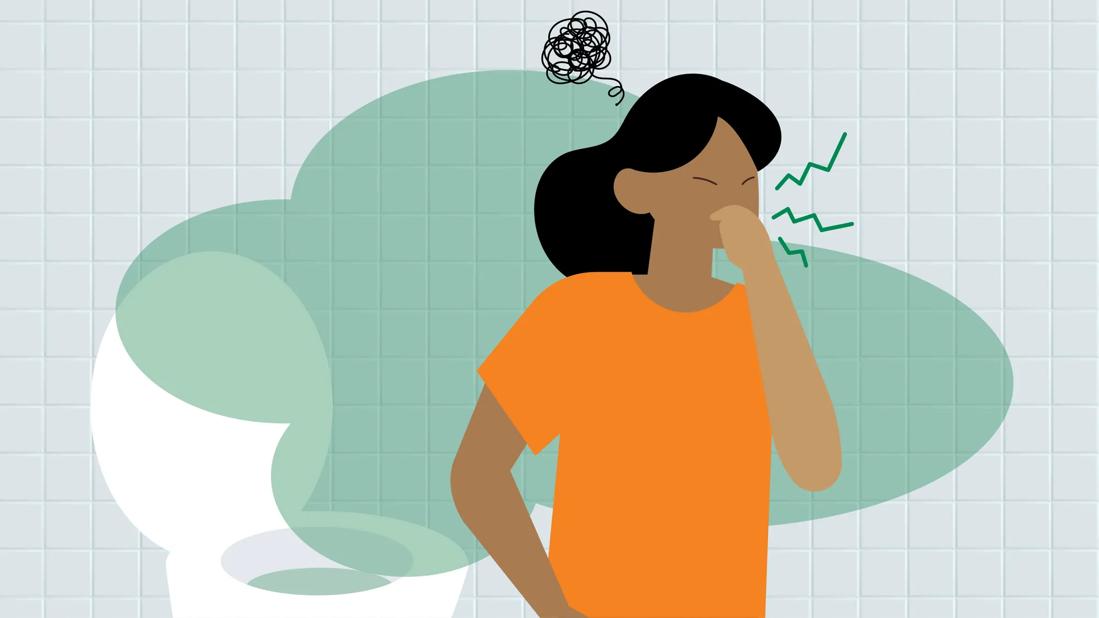Pee is usually odorless; if it’s stinky, your diet is the likely culprit

Image content: This image is available to view online.
View image online (https://assets.clevelandclinic.org/transform/57cff9c5-2624-4d38-b43a-cc43f92f1a97/urineSmells1-1324677571_770x533_jpg)
urine smells
Most of the time, you go to the restroom and the pee that comes out is … well, hardly notable. But then there are other days when the urine flows and your nose immediately picks up a certain funkiness.
Advertisement
Cleveland Clinic is a non-profit academic medical center. Advertising on our site helps support our mission. We do not endorse non-Cleveland Clinic products or services. Policy
Consider it a whiff of information, as the smell of your urine can offer important insight into what’s happening inside of your body.
Let’s learn how to sniff out the clues with urologist Petar Bajic, MD.
Most urine odor can be explained simply by diet, vitamins, medications and hydration levels. But sometimes, that malodorous stream serves as a warning sign of an underlying health issue that deserves attention, notes Dr. Bajic.
For instance:
If you detect a hint of ammonia in your urine, it could be a sign of a urinary tract infection (UTI). The odor suggests that bacteria may be swimming around in your urinary system, most likely in your urethra, kidneys or bladder.
Urine showing signs of a UTI also may be cloudy or even a bit bloody. Peeing may also become painful — a symptom made even worse by the fact that you may feel the need to urinate more often. A fever and mental confusion are other tell-tale accompanying signs.
If you have multiple symptoms, schedule a visit with a healthcare provider.
UTIs are pretty common, sending approximately 10 million Americans to the doctor every year for antibiotic treatment, says Dr. Bajic. Women and people assigned female at birth and older adults are more prone to getting the infection.
Advertisement
Other potential causes of urine that carry the whiff of ammonia include:
An ammonia-like odor can also be linked to dehydration and certain foods and vitamins, as mentioned previously. So, if the smell pops up and disappears quickly, there’s little reason for concern. If it lingers, though, get checked by a medical professional.
Pee with a sugary or fruity fragrance can serve as a warning sign of diabetes or hyperglycemia (high blood sugar), says Dr. Bajic. The sweet smell comes from your body unloading excess glucose, or sugars.
In children, particularly newborns, sweet-smelling tinkle might indicate maple syrup urine disease. This rare, life-threatening metabolic disorder prevents the body from breaking down specific amino acids found in food.
The underlying message here? Urine that smells sweet shouldn’t be ignored. Check-in with your doctor.
There are plenty of innocuous reasons for pee to have notes of sulfur, like asparagus, garlic or onions. But if you haven’t recently taken a trip to Flavortown, foul-smelling urine could indicate one of two rare metabolic disorders.
Trimethylaminuria, also known as TAMU or fish odor syndrome, is a rare condition in which your body is unable to process trimethylamine — which, as it happens, is a particularly stinky chemical. The unfortunate result: Pee, breath and sweat that smells like, you guessed it: rotting fish. This condition can be inherited or acquired. While it’s an unpleasant condition, it isn’t especially dangerous.
The opposite is true of tyrosinemia, which has three distinct types (type I, II, and III). Infants with this (extremely rare) genetic disorder can’t break down an amino acid called tyrosine, which is foundational to most proteins. The resulting tyrosine buildup can cause a wide range of severe complications. Tyrosinemia is exceedingly rare, but if your infant’s urine is foul-smelling, you should talk to your pediatrician anyway, just to be safe.
For the most part, urine carries very little odor. The reason why is simple: It’s about 95% water. The remaining amount is mostly waste products — calcium, nitrogen, potassium and more — which get filtered by your kidneys. That said, there are several innocuous reasons your pee may smell:
Advertisement
“This is all completely normal,” says Dr. Bajic. “It reflects the life you’re living.”
There’s usually a pretty basic explanation for urine that smells a bit different. It’s just the way your body functions, according to Dr. Bajic. In most cases, that funk should disappear within a day or so.
But if the smell stays and is accompanied by other symptoms, it’s something that deserves further investigation. Don’t ignore it.
Advertisement

Sign up for our Health Essentials emails for expert guidance on nutrition, fitness, sleep, skin care and more.
Learn more about our editorial process.
Advertisement
Most recommended precautions center around minimizing bruising or swelling
Even one drink can have an impact on your cognitive function leading to slurred speech, blurred vision and impaired memory
Understand who may (and may not) benefit
Lorem ipsum dolor sit amet. Et odio Quis vel ipsam omnis eum alias deleniti et placeat impedit non voluptas galisum hic autem enim et cupiditate aliquid. Est beatae quidem non facilis autem ut commodi nisi aut tempore rerum et dolores voluptatem cum enim optio id sapiente quasi. Ad laboriosam officiis 33 cupiditate sequi ea voluptatum consectetur qui necessitatibus voluptate et quasi doloremque et facere explicabo quo explicabo officia
Seeking help through therapy can be an important step in improving your quality of life when you have UC
Type 2 diabetes isn’t inevitable with these dietary changes
Applying a hot or cold compress can help with pain
Pump up your iron intake with foods like tuna, tofu and turkey